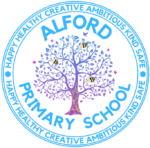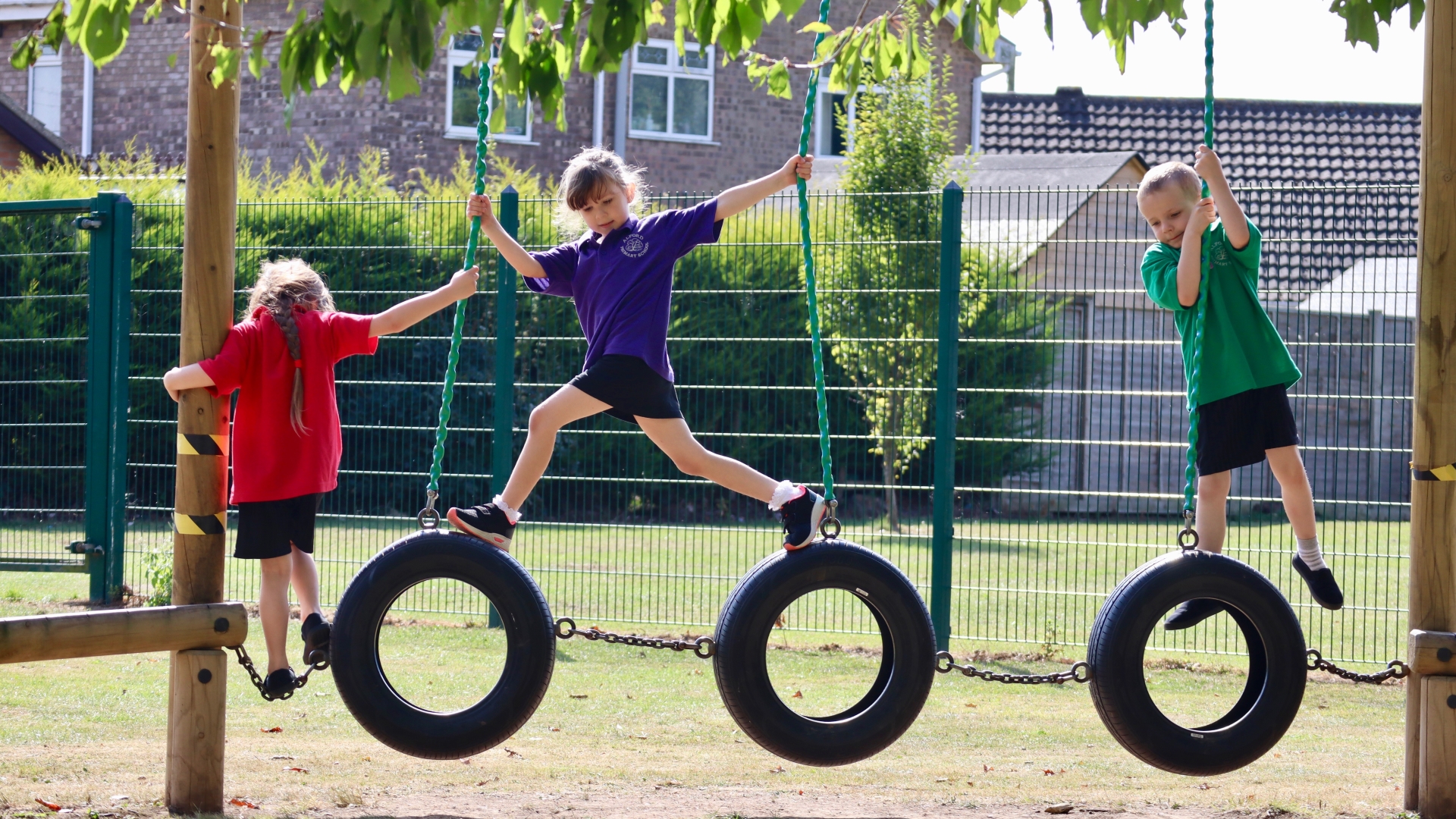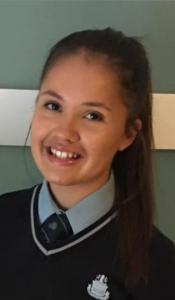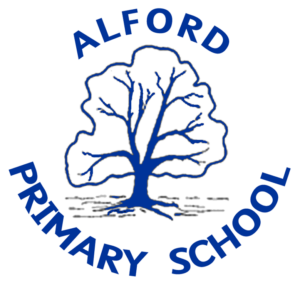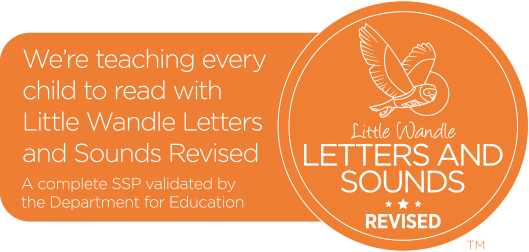
At Alford Primary School we have an ambitious, broad curriculum that has reading at the heart of it. We believe that all our children can become fluent readers and writers. This is why we teach phonics and early reading through Little Wandle Letters and Sounds Revised, which is a systematic and synthetic phonics programme. It is a highly effective, systematic approach to the teaching of phonics which is embedded securely in our curriculum and ensures that our children develop strong reading skills from an early age. Right from the start of Reception, we follow the Little Wandle Letters and Sounds Revised progression, which ensures children build on their growing knowledge of the alphabetic code, mastering phonics to read and spell as they move through school.
At Alford Primary School we also model the application of the alphabetic code through phonics in shared reading and writing, both inside and outside of the phonics lesson and across the curriculum. We have a strong focus on language development for our children because we know that speaking and listening are crucial skills for reading and writing in all subjects.
By the time children leave us, our children read confidently for meaning and regularly enjoy reading for pleasure. Our readers are equipped with the tools to tackle unfamiliar vocabulary. We encourage our children to see themselves as readers for both pleasure and purpose.
Because we believe teaching every child to read is so important, we have a Phonics Leader and Reading Leader who collaboratively drive the early reading programme in our school. These leaders are highly skilled in teaching phonics and reading, and they monitor and support our reading team, so everyone teaches with fidelity to the Little Wandle Letters and Sounds Revised programme.
Little Wandle Letters and Sounds Revised
We use the Little Wandle Letters and Sounds Revised parents’ resources to engage our families and share information about phonics, the benefits of sharing books, how children learn to blend and other aspects of our provision, both online and through regular reading events and workshops within school.
Our daily Keep up lessons ensure every child learns to read. Any child who needs additional practice has Daily Keep up support and is taught by a fully trained adult. Daily Keep up lessons follow the Little Wandle progression and use the same procedures, resources and mantras, but in smaller steps with more repetition so that every child secures their learning.
We timetable daily Rapid Catch Up phonics lessons for any child in Year 2 or above who is not at age-related expectations for reading or has not passed the Phonics Screening Check. Phonics and Early Reading in Rapid Catch-up lessons mirrors the core programme. Children following the Rapid Catch-up programme are taught to read using the 7+ fully decodable books. These follow the same progression as the core programme but are more appropriate for older readers.
Reading Practice Sessions
Children on our core Little Wandle programme read fully decodable books with an adult a minimum of 3 times per week during our ‘Reading Practice’ sessions. Each reading practice session has a clear focus, so that the demands of the session do not overload the children’s working memory. The reading practice sessions have been designed to focus on three key reading skills:
- Decoding: teaching children to use phonic knowledge to read words
- Prosody: teaching children to read with understanding and expression
- Comprehension: using dialogic talk to help children to understand the text.
The decodable reading practice books are then sent home for children to build their reading fluency and showcase their developing skills and phonetic knowledge to their parents/carers.
In Year 2, we ensure children complete reading the core programme decodable books (up to Phase 5 Set 5). To exit the programme, we complete the final fluency assessment to ensure children can read with adequate speed and accuracy: approximately 60 words per minute with 90%+ accuracy.
Supporting Your Child With Reading
Although your child will be taught to read at school, you can have a huge impact on their reading journey by continuing their practice at home.
There are two types of reading book that your child may bring home:
A reading practice book. This will be at the correct phonic stage for your child. They should be able to read this fluently and independently.
A sharing book. Your child will not be able to read this on their own. This book is for you both to read and enjoy together.
Reading practice book
This book has been carefully matched to your child’s current reading level. If your child is reading it with little help, please don’t worry that it’s too easy – your child needs to develop fluency and confidence in reading.
Listen to them read the book. Remember to give them lots of praise – celebrate their success! If they can’t read a word, read it to them. After they have finished, talk about the book together.
Sharing book
In order to encourage your child to become a lifelong reader, it is important that they learn to read for pleasure. The sharing book is a book they have chosen for you to enjoy together.
Please remember that you shouldn’t expect your child to read this alone. Read it to or with them. Discuss the pictures, enjoy the story, predict what might happen next, use different voices for the characters, explore the facts in a non-fiction book. The main thing is that you have fun!
For more information on how our school promotes reading for pleasure, please click here.
Supporting Resources
We use the Little Wandle Letters and Sounds Revised parents’ resources to engage our families and share information about phonics, the benefits of sharing books, how children learn to blend and other aspects of our provision, both online and through regular reading events and workshops within school.
Year 1 Phonics Screening Check
Children in Year One take part in an individual Phonics Screening Check in the Summer term. We do our best to make the children feel at ease during this time and just concentrate on doing their best. We appreciate your child’s full attendance during these times.
Please note, that if any pupil did not sit or did not pass their phonics screening check in Year 1, they will be required to take them in Year 2 in the Summer term.
